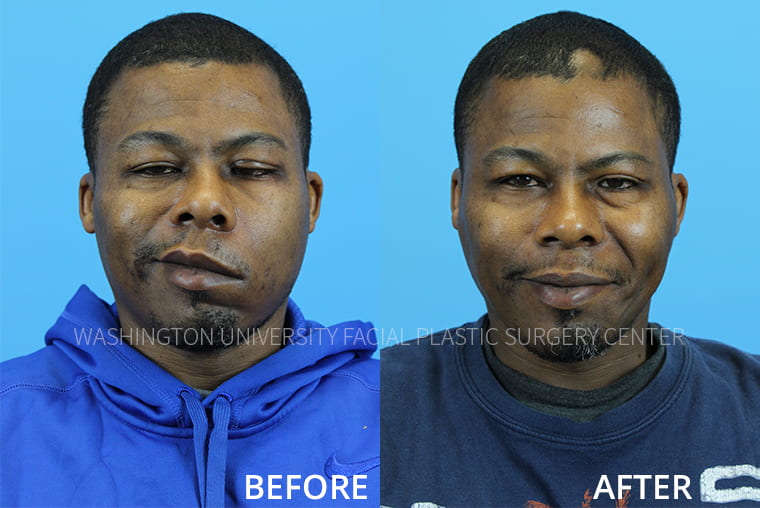Investigating the Mental and Social Factors That Drive People to Consider Plastic Surgery as a way of Enhancement
The decision to seek cosmetic surgical procedure often expands beyond plain aesthetics, linking with social and mental characteristics that merit detailed assessment. Aspects such as self-esteem, pervasive social appeal requirements, and the prevalent influence of social media converge to form individual inspirations for surgical enhancement.
The Duty of Self-Esteem
Self-esteem substantially influences a person's decision to seek plastic surgery. Individuals with reduced self-worth typically perceive themselves in a negative light, causing sensations of insufficiency concerning their physical appearance. This adverse self-perception can drive them to seek medical interventions as a method of enhancing their self-image. The wish for renovation in one's appearance is often connected to a belief that such changes will boost their overall self-respect and confidence.

Eventually, the duty of self-esteem in the decision-making process regarding plastic surgery highlights the complex interaction between body photo, individual contentment, and mental wellness. Understanding this partnership is crucial for health care professionals to ensure that individuals are making educated decisions rooted in realistic expectations and psychological health.
Social Beauty Requirements
Influenced by pervasive media portrayals and social narratives, societal appeal requirements play a vital function in forming individuals' assumptions of their own bodies. These standards are commonly identified by an idyllic type of elegance that stresses qualities such as youthfulness, slimness, and balance. As these ideals are bolstered via different channels, consisting of movie, advertising and marketing, and television, individuals frequently internalize these messages, leading to frustration with their all-natural appearance.
The effects of these societal standards prolong beyond visual preferences; they can influence self-confidence, mental wellness, and interpersonal partnerships. Individuals that view themselves as falling brief of these standards might experience feelings of insufficiency, prompting a need for plastic surgery as a way of achieving societal authorization. This pursuit is usually fueled by the idea that satisfying these ideals will boost not only physical look however additionally social standing and personal satisfaction.

Influence of Social Media Site
The effect of social beauty criteria is more enhanced by the surge of social media platforms, where curated pictures and idyllic depictions of beauty are ubiquitous. Customers are constantly subjected to filteringed system and modified pictures, which frequently illustrate unattainable physical features. This direct exposure grows a culture of comparison, leading individuals to examine their very own look versus these often unrealistic criteria.
Social network influencers and celebs regularly advertise cosmetic procedures, normalizing the notion that surgical enhancements are a feasible methods for attaining social perfects (plastic surgery rancho cucamonga). The visibility of these improvements can create a perception that going through cosmetic surgery is a conventional method, consequently influencing individuals to think about similar interventions as a pathway to improved self-worth and social approval
Additionally, the interactive nature of social media sites permits for instant comments through likes and remarks, better enhancing the need to comply with preferred appeal requirements. Such interactions can exacerbate sensations of insufficiency and drive individuals toward cosmetic surgery as a method of obtaining recognition. Eventually, social networks plays a pivotal role fit understandings of charm, which substantially impacts the decision-making procedures bordering plastic surgery.

Social Viewpoints on Look
Across various societies, assumptions of look are deeply rooted in historical, social, and economic contexts, forming individuals' views on beauty and worth. In several cultures, appearance acts as a substantial pen of identification, affecting social status, professional opportunities, and personal partnerships. As an example, in some cultures, light skin is frequently related to wide range and opportunity, while others may glorify darker skin tones as symbols of toughness and authenticity.
Moreover, typical charm standards are often bolstered with social narratives, media representations, and household influences, bring about varying perfects throughout different areas (plastic surgery rancho cucamonga). In Western cultures, the emphasis on youth and physical conditioning typically drives individuals towards cosmetic improvement, while in certain Eastern cultures, even more subtle adjustments aligned with typical appearances may be favored
Globalization and the expansion of electronic media have additionally made complex these dynamics, producing a hybridization of elegance ideals that goes beyond geographical borders. As individuals progressively browse these cultural narratives, the stress to adapt particular look requirements can lead to the need for plastic surgery, reflecting a complex interaction of social worths and personal ambitions. Recognizing these cultural perspectives is crucial in dealing with the motivations behind cosmetic surgical procedure factors to consider.
Psychological Influences of Plastic Surgery
Lots of people looking for plastic surgery record experiencing profound psychological impacts that can significantly alter their self-perception and psychological health - plastic surgery rancho you can try these out cucamonga. The wish for physical enhancement typically stems from underlying issues such as reduced self-worth, body dysmorphic condition, or societal pressures pertaining to elegance requirements. For some, the instant post-operative phase can bring about a short-lived boost in confidence and satisfaction with their look, promoting a sense of next page empowerment
Nonetheless, these positive feelings might not be withstanding. Research shows that while some individuals experience improved self-esteem, others might face heightened stress and anxiety or anxiety if their assumptions are not satisfied. This discrepancy can emerge from unrealistic perfects continued by media representation and social narratives bordering charm.
In addition, the mental implications of cosmetic surgical treatment extend past the individual. Relationships with friends and family may be stressed as social dynamics change, resulting in sensations of isolation or alienation. Ultimately, the mental impacts of plastic surgery are intricate and diverse, calling for cautious factor to consider by both prospective people and doctor to ensure enlightened decision-making and reasonable assumptions.
Final Thought
To conclude, the decision to seek plastic surgery is substantially affected by a mix of self-esteem problems, societal elegance standards, and cultural perspectives on appearance. The pervasive reach of social media sites further intensifies these pressures, advertising impractical perfects that individuals commonly make every effort to achieve. Comprehending these mental and social variables is essential for addressing the motivations behind cosmetic surgical treatment, highlighting the demand for an extra nuanced discussion bordering elegance and self-acceptance in modern culture.
The choice to pursue cosmetic surgery frequently prolongs beyond simple appearances, linking with social and emotional characteristics that warrant detailed exam. Inevitably, social media plays a crucial duty in forming understandings of charm, which considerably impacts the decision-making procedures bordering cosmetic surgical treatment.
As helpful resources individuals increasingly browse these social narratives, the pressure to adjust to details look requirements can lead to the desire for cosmetic surgical treatment, reflecting a complex interaction of social values and individual desires.In conclusion, the choice to go after cosmetic surgery is significantly affected by a combination of self-esteem concerns, social beauty criteria, and social perspectives on look. Recognizing these social and psychological aspects is vital for dealing with the inspirations behind cosmetic surgical treatment, highlighting the demand for a much more nuanced conversation bordering beauty and self-acceptance in modern society.